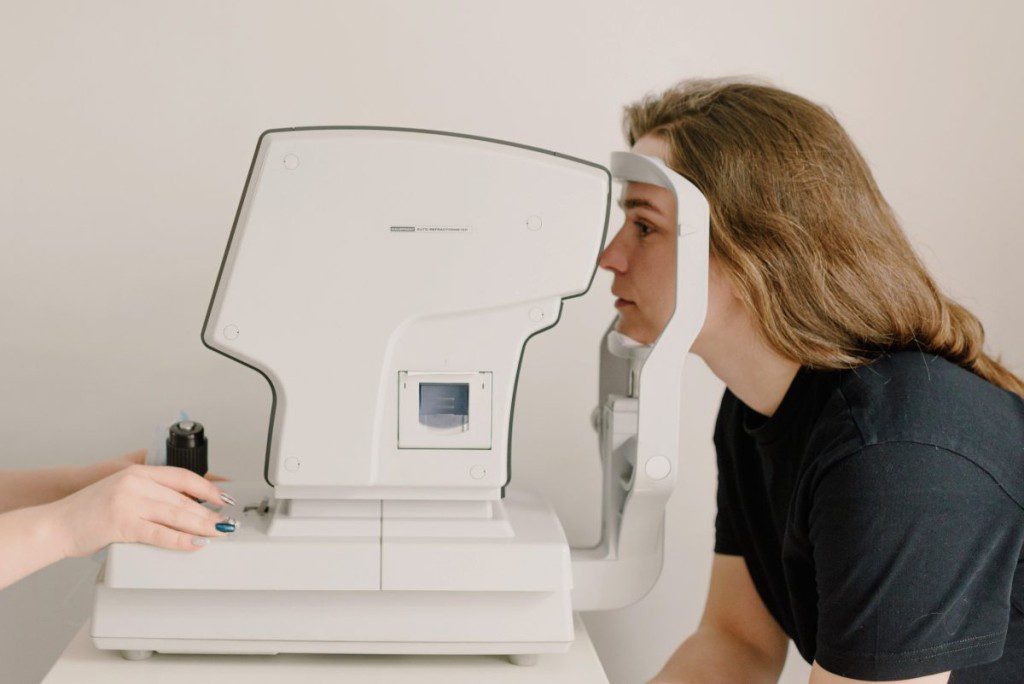The eyes are one of the most important organs for anybody, as they allow you to see and appreciate the beauty of the world around you. Unfortunately, due to various environmental factors such as pollution, dust, and ultraviolet (UV) radiation from sunlight, people often overlook their importance until it’s too late.
In fact, according to a report by the World Health Organization (WHO), 80% of all visual impairment is preventable or treatable – making it even more important that you take proactive steps towards protecting them from harm.
Fortunately, there are several ways you can keep your eyes safe and healthy for years to come, so let’s explore these six simple yet effective tips for doing just that.
Wearing protective eyewear when outdoors
Sunglasses with UV protection block out harmful rays that could otherwise damage your eyes, and even regular glasses can offer a certain degree of protection from dust and other particles in the air.
Additionally, when participating in activities such as cycling, skiing, or other sports, be sure to wear protective goggles that can better shield your eyes from potential impacts. It’s also a good idea to wear glasses with side shields when doing activities like mowing the lawn or using power tools.
Prescription glasses and contact lenses
If you require corrective lenses, it is essential to update your prescription regularly, as vision can change over time. According to Glasses Hut, this ensures that you are always seeing clearly and comfortably, which reduces the risk of eye strain or injury. After all, the last thing you want is to be wearing glasses that are misaligned or too weak for your current vision. From there, you can choose the shape, size, and color of your frames to match your daily look.
Also, those who wear contacts need to take precautions when using them and practice good contact lens hygiene such as washing their hands before inserting, changing them regularly, and not sleeping in them.
Eating a balanced diet
A healthy diet is essential for good eye health as certain vitamins and minerals are essential for keeping the eyes functioning optimally. Foods such as dark green leafy vegetables, fish, nuts, eggs, and yellow or orange fruits like oranges, mangoes, and papaya are rich in vitamins A, C, E, and zinc for healthy vision. Eating these foods regularly can help to preserve your eyesight. Also, make sure you’re getting enough omega-3 fatty acids from sources such as salmon or chia seeds –they help to reduce the risk of dry eyes and macular degeneration.
Getting regular eye exams
Regular checkups are one of the best ways to ensure that your eyes remain healthy over time. Visit an optometrist or ophthalmologist regularly – at least once a year, depending on your age – for comprehensive eye exams to detect any potential problems early. Also, if you use contact lenses or have any eye-related conditions such as glaucoma, it’s important to consult with your doctor to get the best advice for how often you should come in for checkups.
Additionally, make sure to discuss any changes in your vision with your eye doctor immediately – such as blurred vision, floaters, flashes of light, or double vision. These could be signs of something serious and should not be ignored.
Quitting smoking
Smoking can wreak havoc on the eyes, so it’s best to kick the habit if you haven’t done so already. According to the American Academy of Ophthalmology, smoking increases the risk of developing conditions like cataracts, macular degeneration, and even diabetic retinopathy. So if you want to protect your vision for years to come, it’s best to quit now – or better yet, never start.
On the other hand, if you’re already a smoker and are having difficulty quitting, talk to your doctor who can suggest medications or programs that may help. There are also lots of online resources to help support you in your quest to quit smoking.
Limiting screen time
Too much time spent in front of screens – whether it’s a computer, phone, or tablet – can cause digital eye strain and fatigue. Taking frequent breaks throughout the day to give your eyes some rest, as well as using the 20-20-20 rule – looking away from the screen every 20 minutes and focusing on something at least 20 feet away for at least 20 seconds – can go a long way in helping to prevent eye strain.
Additionally, adjusting the brightness and contrast of your screen can help reduce the amount of light entering your eyes, which is beneficial for reducing digital eye strain.
Therefore, from wearing protective glasses when doing hazardous activities, eating a balanced diet rich in vitamins and minerals, getting regular eye exams, quitting smoking or limiting screen time, as well as using lubricating drops – following these tips can help ensure that your vision remains sharp for years to come.
Remember to always consult with an optometrist or ophthalmologist if you have any worries or questions regarding the health of your eyes.






